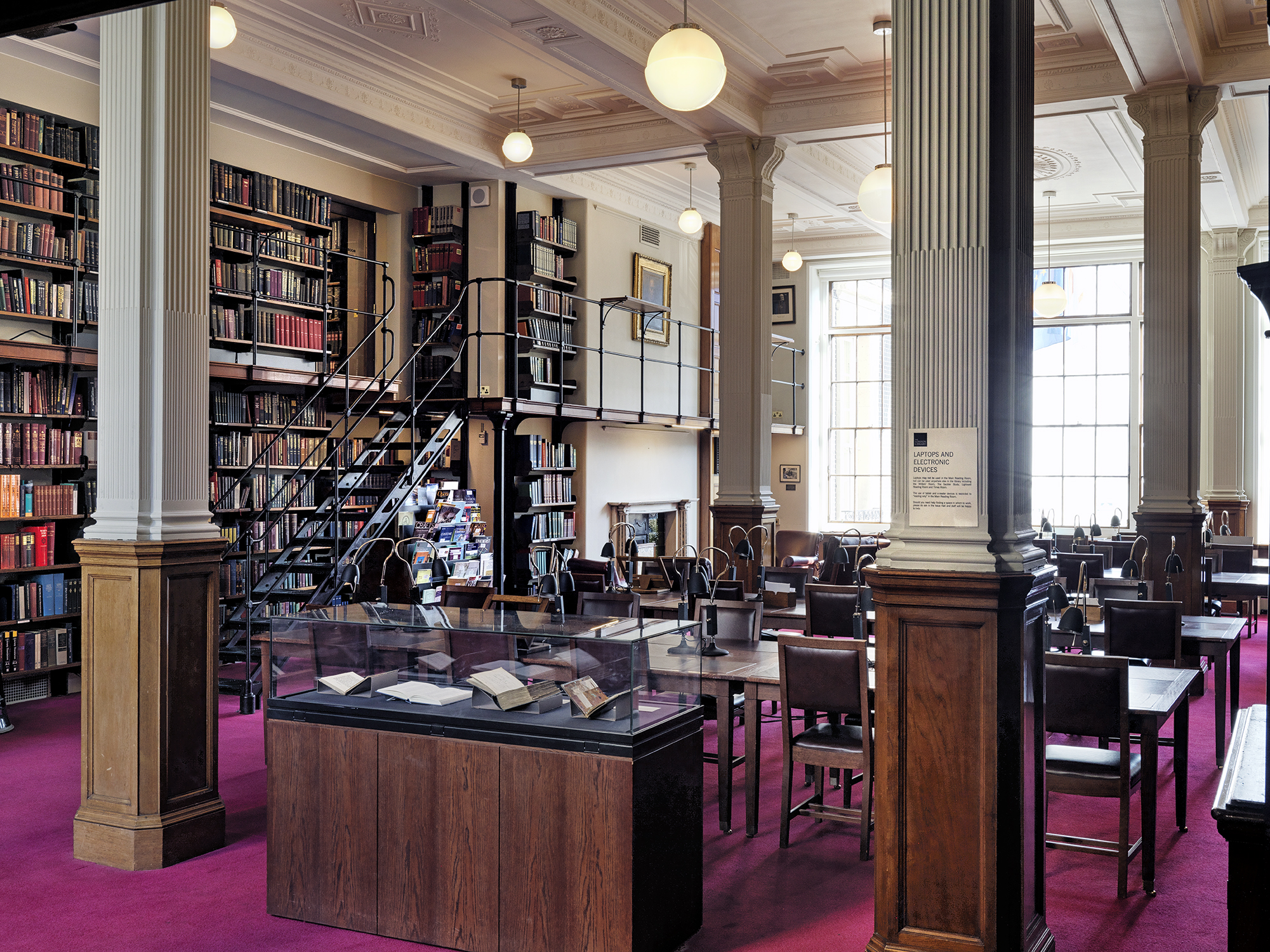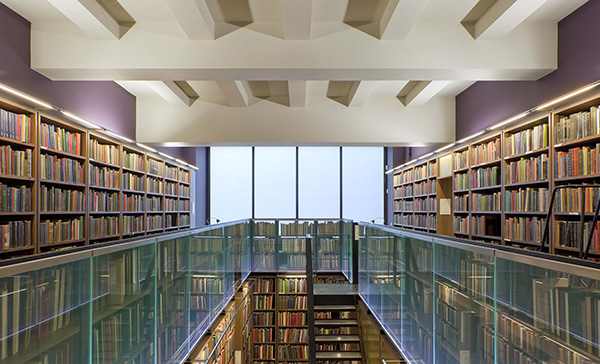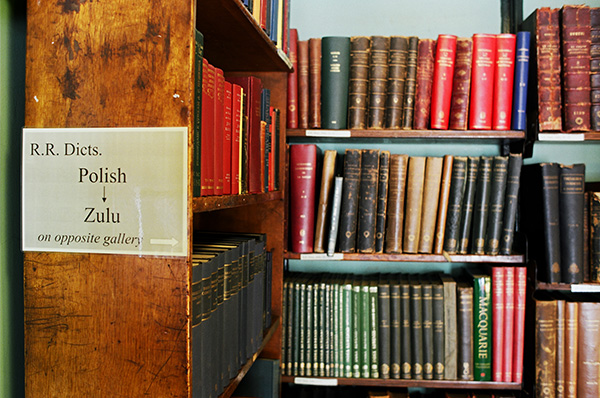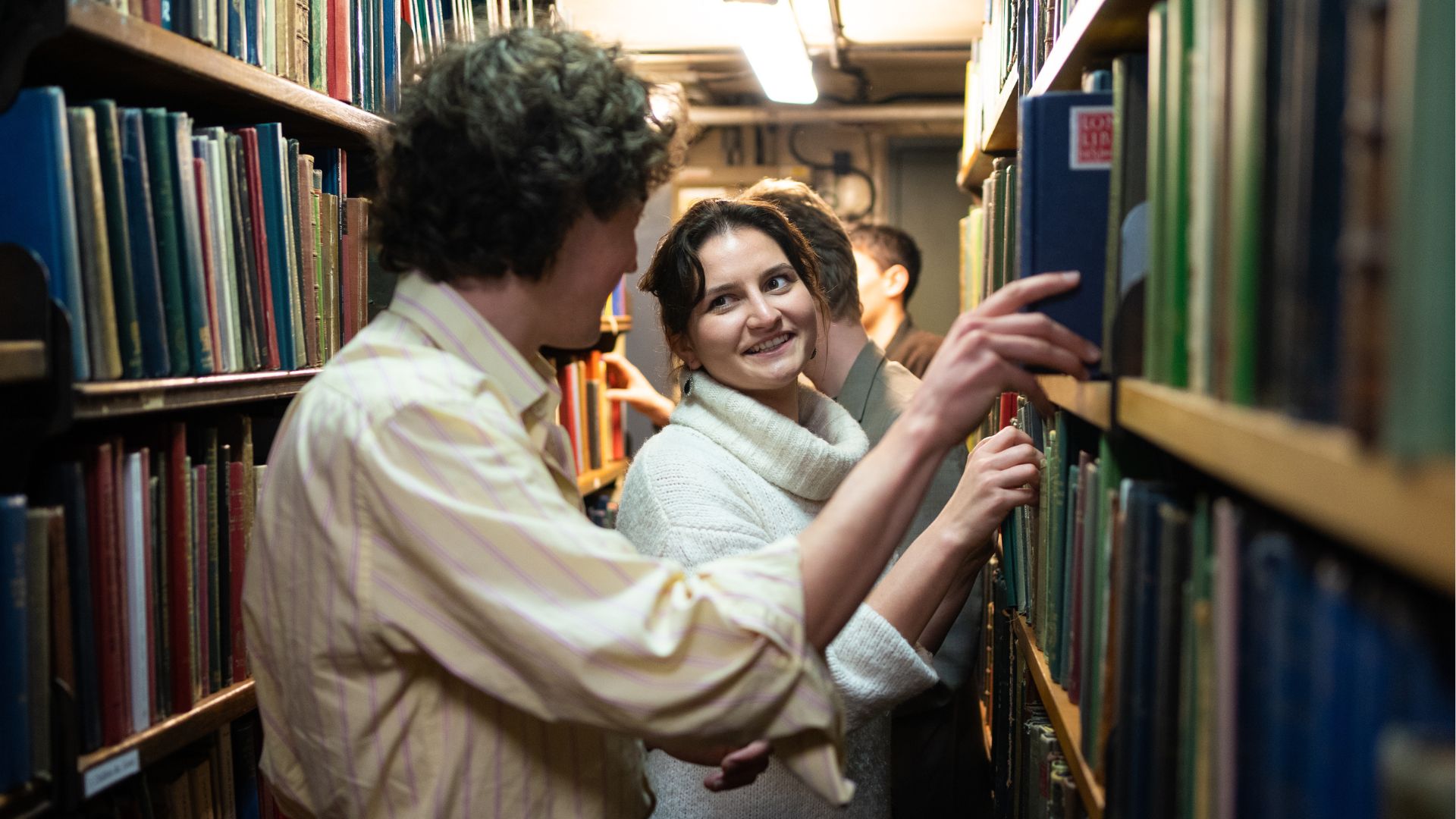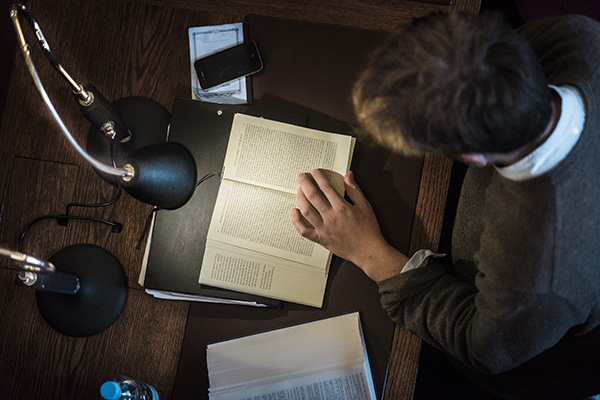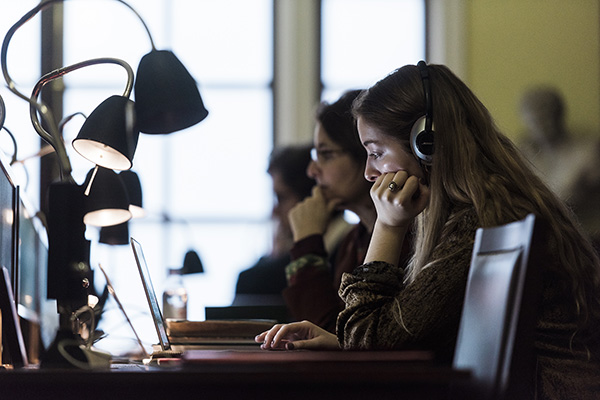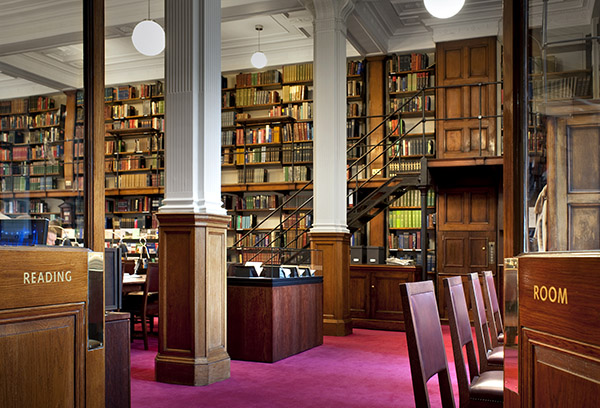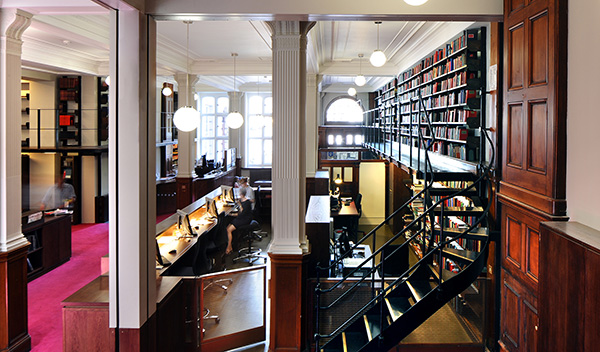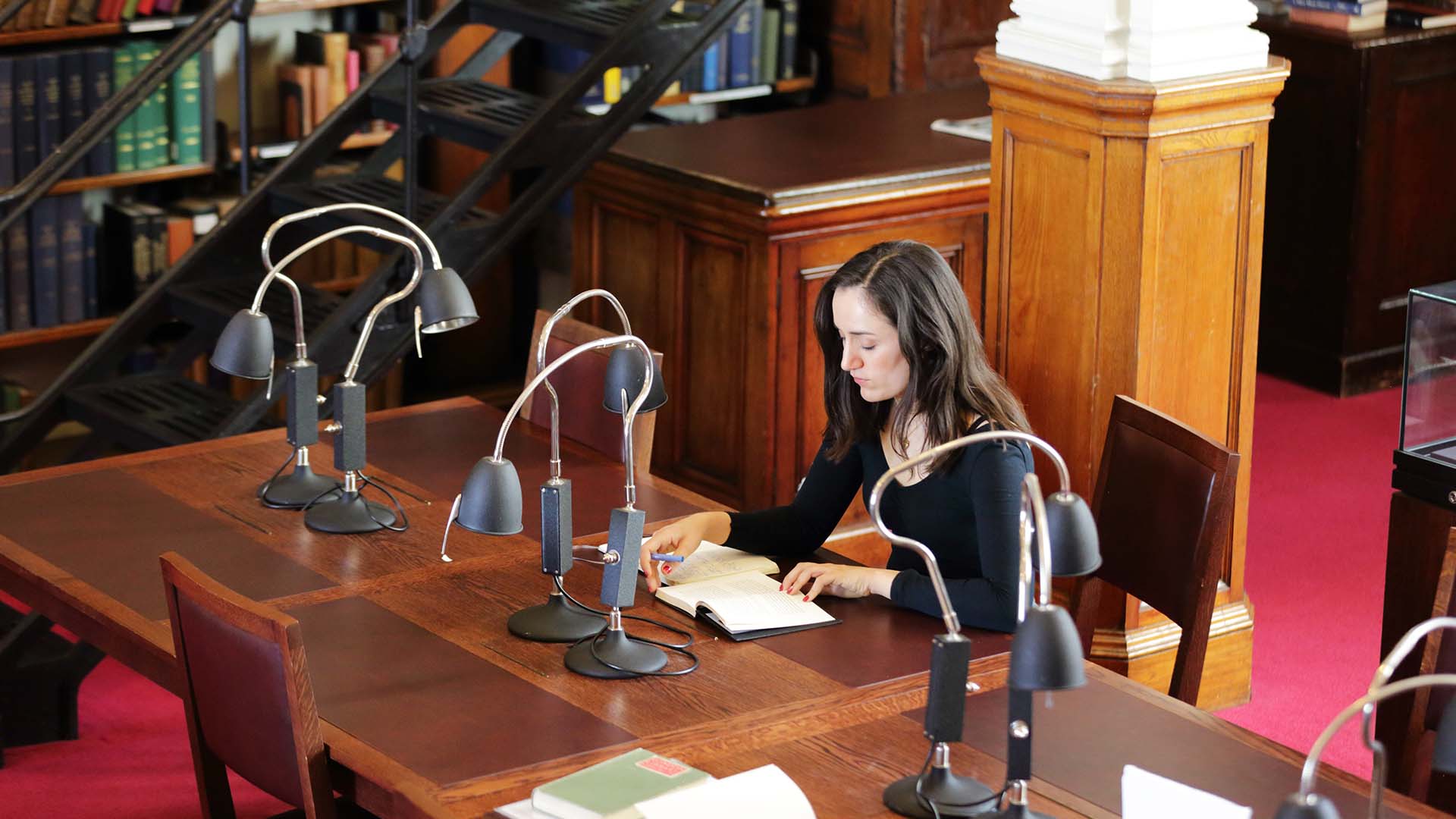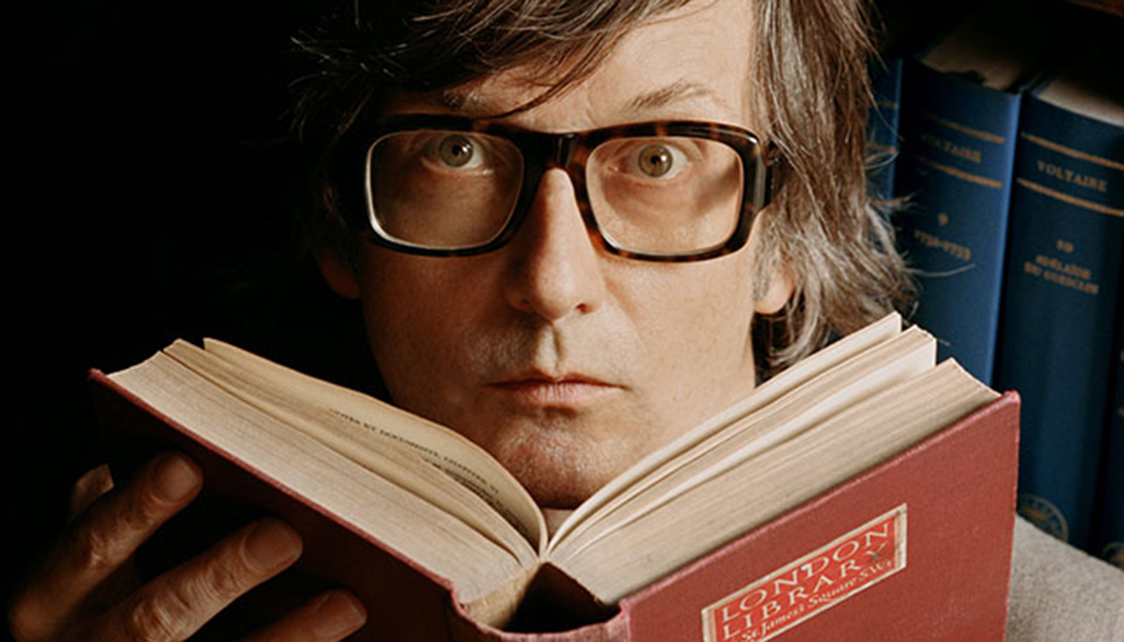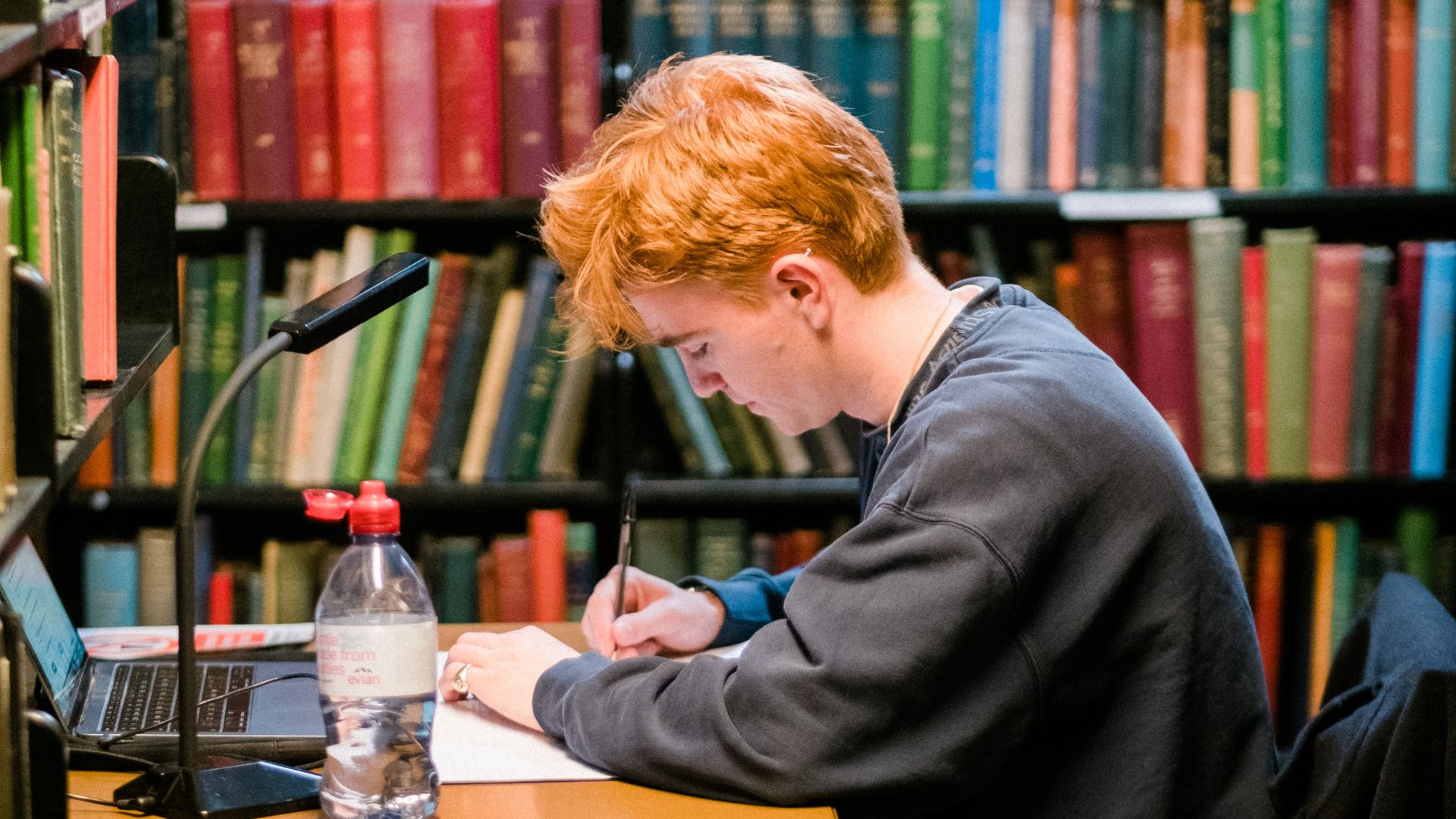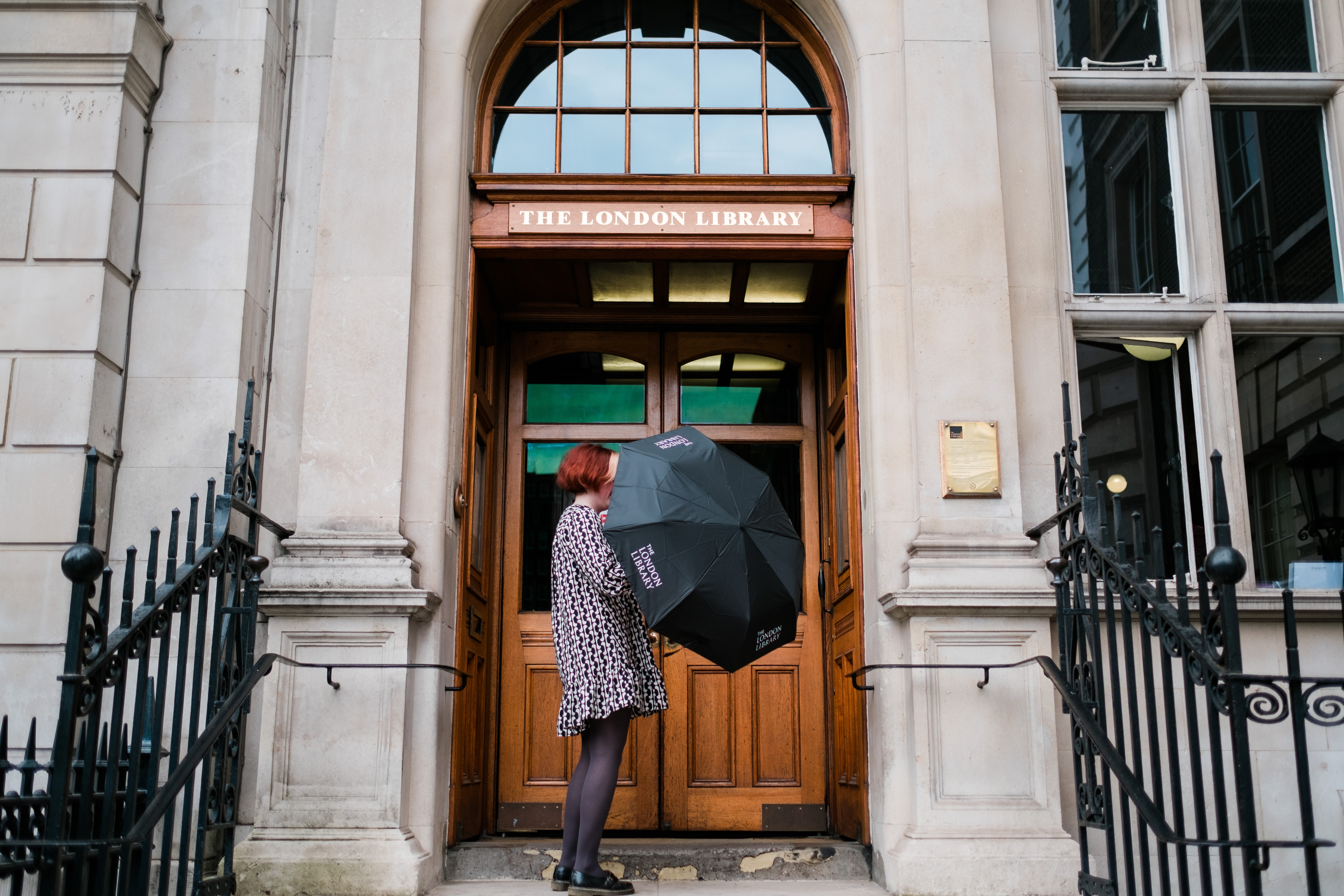We’re delighted that the Library has been shortlisted for this year’s FutureBook awards organized by the book industry’s leading trade title The Bookseller. The awards will be announced at the FutureBook conference on 19th November and the Library has been nominated in two categories. In the Events category the Library’s 180th anniversary LitFest – the remarkable online festival that featured 51 speakers including Salmon Rushdie, Sarah Waters and a staged adaption of A Room of One’s Own with Nina Sosanya – is pitched against the Booker Prize, World Book Night, Penguin Talks and the VoyagerCon festival for the top award.
In the Team of the Year category, the Library’s Postal Loans team vies with Penguin Random House and Hachette UK on the final shortlist. Throughout the pandemic, the Postal Loans Team has run an enhanced service that has seen over 22,000 books sent out to members. The team has faced challenging working and travelling conditions during lockdown and at a time when very few Libraries were able to make their collections accessible at all, the service has been hugely appreciated by members.
We’re delighted to have the Library’s events and postal loans recognised in this way and look forward to the 19th!
The London Library, the UK’s largest independent library, will team up with the Jhalak Prize to offer shortlisted and winning authors complimentary membership with full access to the Library’s collection of over a million books and to its extensive online resources.
For the next three years, the shortlisted authors for the Jhalak Prize and the new Jhalak Children’s & YA Prize will receive a complimentary one-year membership and the winning authors of both prizes will receive a complimentary two-year membership of The London Library.
The London Library will host a celebration of the prize for all the shortlisted authors of the Jhalak Prize and Jhalak Children’s & YA Prize for each of the three years.
The Jhalak Prize was established in 2016 to celebrate books by British and British resident writers of colour and the Jhalak Children’s & YA Prize was founded in 2020. Jennifer Nansubuga Makumbi won the Jhalak Prize in 2021 for her novel The First Woman, published by Oneworld, and entries for the 2022 prizes are open until 15 December 2021.
Commenting on the partnership, London Library Trustee Yassmin Abdel-Magied says: “I’m so pleased that The London Library is partnering with the Jhalak Prize to help celebrate and support the work of British and British resident writers of colour. We are delighted to provide Jhalak prize nominees with Library membership and free access to our collection and very much look forward to welcoming such gifted writers to the Library’s writing community. I hope to meet some myself, browsing through the stacks!”.
The Jhalak Prize’s Sunny Singh comments: “We are delighted to partner with The London Library to celebrate and support writers of colour in Britain. The London Library is a uniquely writerly institution not only with its incredible collection but also its writing spaces. We can’t wait to have our winners and shortlisted authors join this incredible community.”
Read more: Announcing our New Partnership with the Jhalak Prize
The 2021 London Library Christmas card is designed by the illustrator Vanessa Lovegrove. Lovegrove is a Bristol-based illustrator who worked as a children's book designer before moving on to freelance illustration. Her award-winning picture book, Mind Hug, was published in 2017, and her work expresses a genuine love of character and narrative through the use of mark-making and texture. Her festive card for the Library features the Reading Room on a winter's evening - a cosy haven for all bibliophiles.

A pack of 8 cards and envelopes costs £8, including postage within the UK mainland. They can be ordered here.
The London Library is pleased to announce a new one-year partnership with English PEN to support their work with writers at risk and in exile. Starting immediately, The London Library will offer five complimentary Library memberships, providing the writers with full access to the Library’s collection of over a million books and to its extensive online resources.
The first writer to be welcomed into London Library membership under this scheme is Awet Fissehaye, a poet, writer, and lyricist originally from Eritrea the first recipient of the National Poetry Prize for Students in 2000. Fissehaye is an Honorary Member of English PEN and a member of their sister centre, PEN Eritrea in Exile. He has lived in exile in the United Kingdom since 2016.
Awet Fissehaye commented: “After my first unforgettable visit to The London Library, I started to have a feeling that I am frequenting a temple where ideas from books are worshipped. I am a firm believer in books. For me, being offered this London Library membership in partnership with English PEN means that I will be able to access thousands of books of my interest, stretched across generations and cultures. In the past, the lack of space to write and create was the biggest challenge for me. Now, the quiet, well-equipped and well-lit reading and study rooms will offer me the convenience to focus, ruminate, research, and write.”
Philip Marshall, Director of The London Library, commented: “So many writers across the world face ongoing threats to their lives and livelihoods. Through this partnership with English PEN, The London Library is proud to be welcoming writers at risk into our unique community of writers and give them access to our unique resources to support their writing and research.”
Daniel Gorman, Director of English PEN, commented: “With this partnership, we’re proud to extend our support for writers at risk and in exile who will join The London Library’s prestigious list of members and have access to one of the greatest collections. We’re delighted to consolidate our long-standing collaboration in our 100th year, and the London Library’s 180th.”
Alongside providing membership, The London Library and English PEN are also collaborating on events, more details of which will be announced soon. The events build on those held earlier this year - featuring Salman Rushdie and a celebration of writer Rebecca West - that formed part of the Library’s 180th anniversary LitFest in May and English PEN’s year-long centenary programme, Common Currency. A further extension of the partnership involves English PEN becoming an institutional member of The London Library, and The London Library a Silver PEN partner.
This will be the first time the two organisations have made a formal partnership, despite close connections over the years. Past English PEN Presidents John Galsworthy, EM Forster and HG Wells were London Library life members and Library Vice-President Rebecca West and member Harold Pinter played prominent roles in the development of English PEN.





